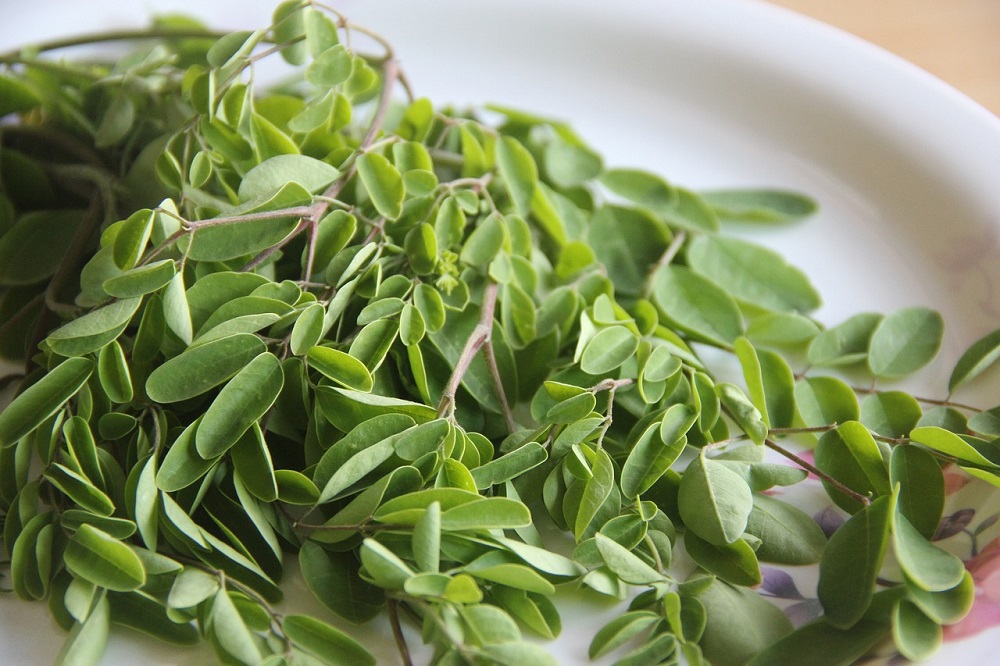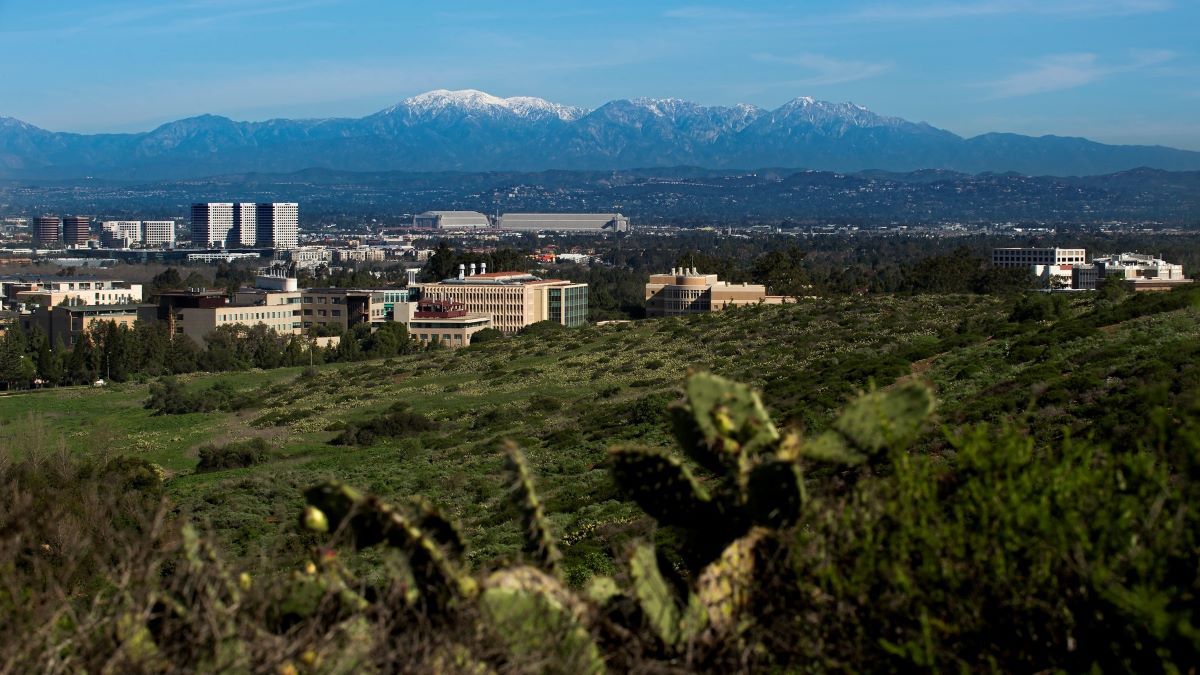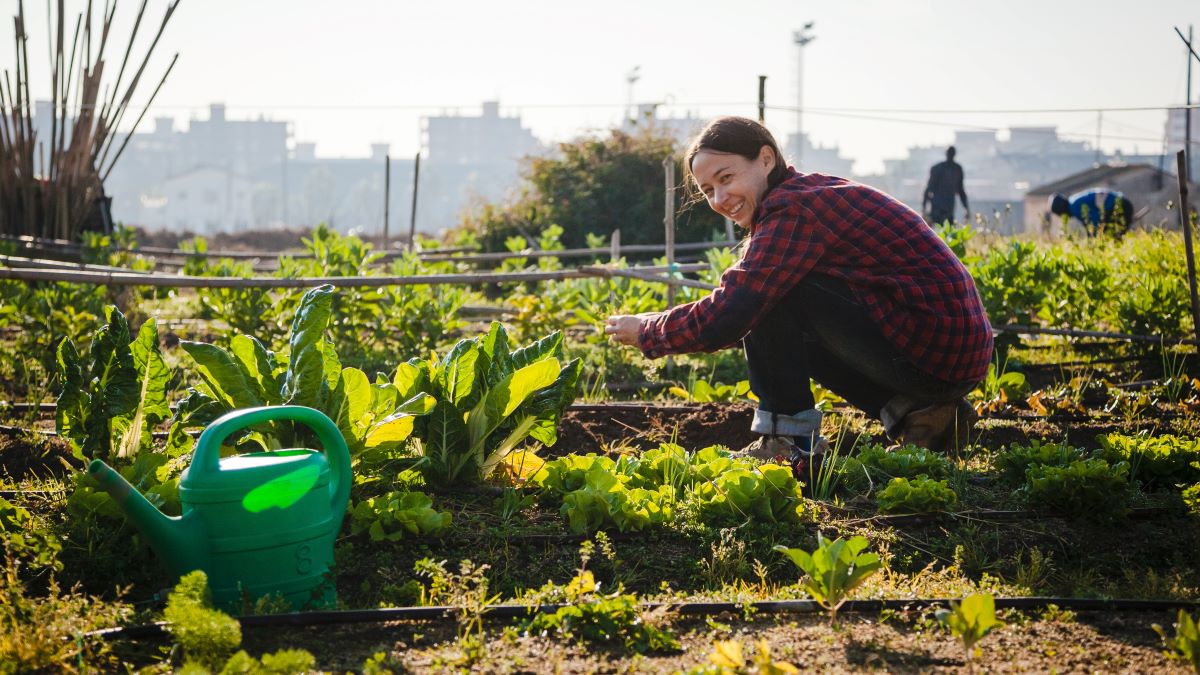Are you familiar with the moringa tree? Every part of this special tree offers unique benefits. Parts of the moringa plant have been used for medicinal purposes for centuries. Among its many healing benefits, it is used for antifungal, anti-inflammatory, and antidepressant applications. Many people use it as a sustainable and nourishing food source. It is also a popular nutritional supplement. In fact, some consider it a superfood.
Moringa oleifera — also referred to as the drumstick tree, miracle tree, ben oil tree, and even horseradish tree — is native to India, but grows in most tropical and subtropical regions. The plant grows quickly and is also resistant to drought.
Let’s take a look at some of the benefits of this versatile plant.

Benefits and Uses of Moringa
Food Source With High Nutritional Value
Every part of the moringa tree— leaves, nuts, seeds, bark, pods, tubers, roots, and flowers — is edible. However, the leaves, seeds, and flowers are the most commonly eaten parts.
- The leaves are rich in protein; vitamins A, B, and C; and minerals. They can be eaten fresh, cooked, or dried.
- The seeds can be eaten cooked, roasted, fermented, or ground into a flour. They are a good source of lipids, proteins, and fiber.
- The flowers are rich in vitamins and minerals.
Nongovernmental organizations like Trees for Life, Church World Service, and the Educational Concerns for Hunger Organization encourage the use of moringa as a highly nutritious food source to fight malnutrition.
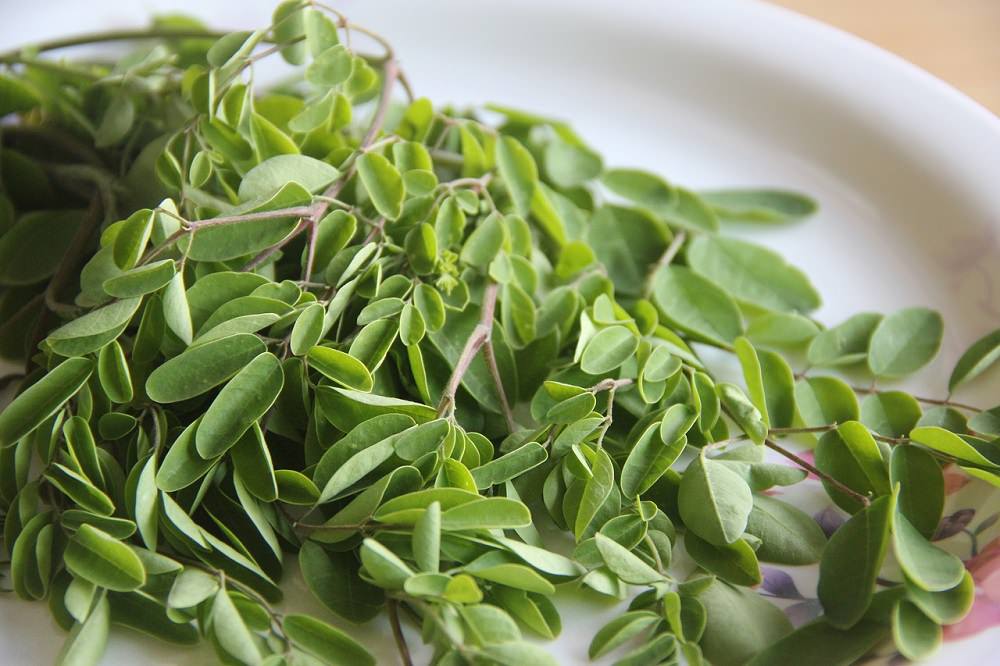
Water Quality Enhancement
Moringa seeds can be used to purify water. They have coagulating and flocculating properties that cause organic matter in water to form sediment and fall to the bottom of a filter. The resulting water can be sterilized and clarified for a subsequent purification process.
Additionally, the seed pods are used to remove pesticides and organic pollutants from wastewater.
Versatile Moringa Oil
Moringa oil, which is obtained from the seeds of the plant, is more stable than many seed oils and resists oxidation. It makes a good cooking oil and also has potential for other applications including biodiesel, cosmetics, and lubricant for machinery.
After the oil is extracted from the seeds, the remaining residues of the seeds can be used in organic fertilizer.
Medicinal Applications
Extracts from the moringa plant help in the treatment of asthma and high blood pressure. Made into a balm, it can treat wounds and bacterial infections and nourish the skin and hair. Parts of the plant, such as the fibrous seed pods, can also treat digestive problems. Extracts of the leaves have been shown to help in the treatment of depression and anxiety.
Some studies found that moringa has anti-diabetic and anticancer properties.
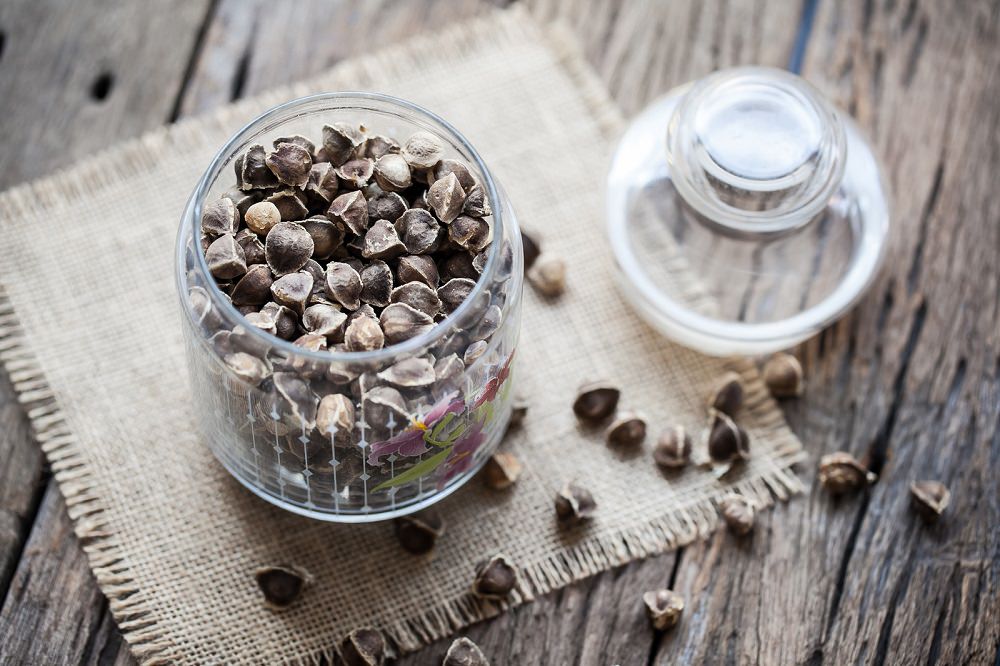
How Is Moringa Sustainable?
Reliable Food Source
Because moringa can grow with little water, it’s a reliable food source for people in regions that may face droughts and lack of irrigation. It is widely grown in sub-Saharan Africa, where other crops struggle to grow because of drought, poor soil, and extreme heat.
Moringa is a great resource for people in remote and poor communities, as they can easily grow it and benefit from its many nutritional components. It also offers a variety of health remedies to people who don’t have access to modern healthcare. Countries across Africa, Central America, and South America are able to benefit from growing moringa trees.
In the lowlands of Ethiopia, moringa trees are native and a daily part of people’s diets. However, in the highlands, the trees are not common. To remedy that, The Hunger Project handed out 3,500 moringa seedlings during 2015, many of which were planted in a common plantation for the local community to benefit from the tree as a food source.
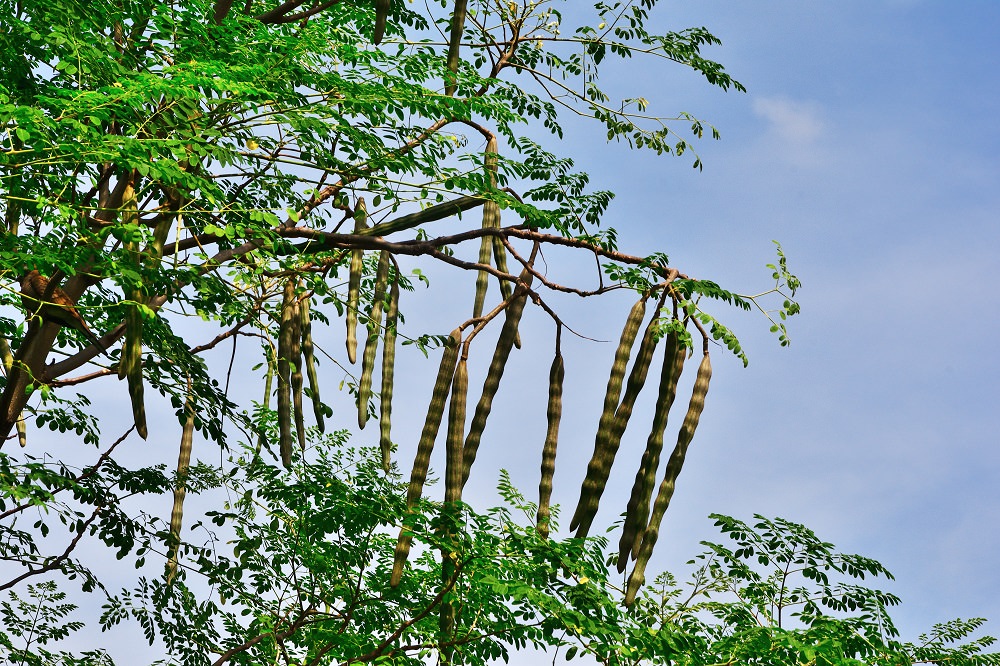
Helps Reverse Deforestation
Moringa is a fast-growing tree; it can grow to almost 10 feet tall in its first year, and reaches as tall as 30 feet at maturity. In areas where there has been deforestation, people are planting moringa trees to promote reforestation.
In areas of Haiti, for example, where there is deforestation due to agriculture, livestock, and tropical storms, residents are planting moringa trees to replenish the soil and provide food and income. Once the soil has become secure and received nourishment from the moringa tree, farmers are able to plant other crops.
Green World Campaign (GWC) is also helping villagers in Kenya to reforest and increase their food security and nutrition with this beneficial tree.
Provides Income for Farmers
Kuli Kuli, a nonprofit founded by Peace Corps volunteers, partners with farmers, who are often women, in Ghana to teach them how to grow moringa. The organization provides education about how to use the plant for nutritional purposes.
In addition, the farmers sell some of the moringa they produce to America for use in food products. This allows the residents of these small communities to make a profit that is often 5 to 10 times the average income for the area.
Growing moringa can help improve the environment while also working towards eliminating poverty. It provides people in poverty, who are often malnourished, with important nutrients.
Why Is Moringa Considered a Superfood?
Whether fresh, cooked, or powdered, moringa provides essential nutrients; few foods are as rich in vitamins, nutrients, and antioxidants.
A nutritional analysis of moringa leaves and seeds reports that they are excellent sources for calcium, potassium, and vitamins C and A. For example, the seeds have more than twice the vitamin A as carrots and more than nine times the amount of calcium as whole milk. The leaves contain almost the same amount of vitamin C as oranges and more than twice the potassium as bananas. Moringa is also packed with amino acids and 18 types of antioxidants.
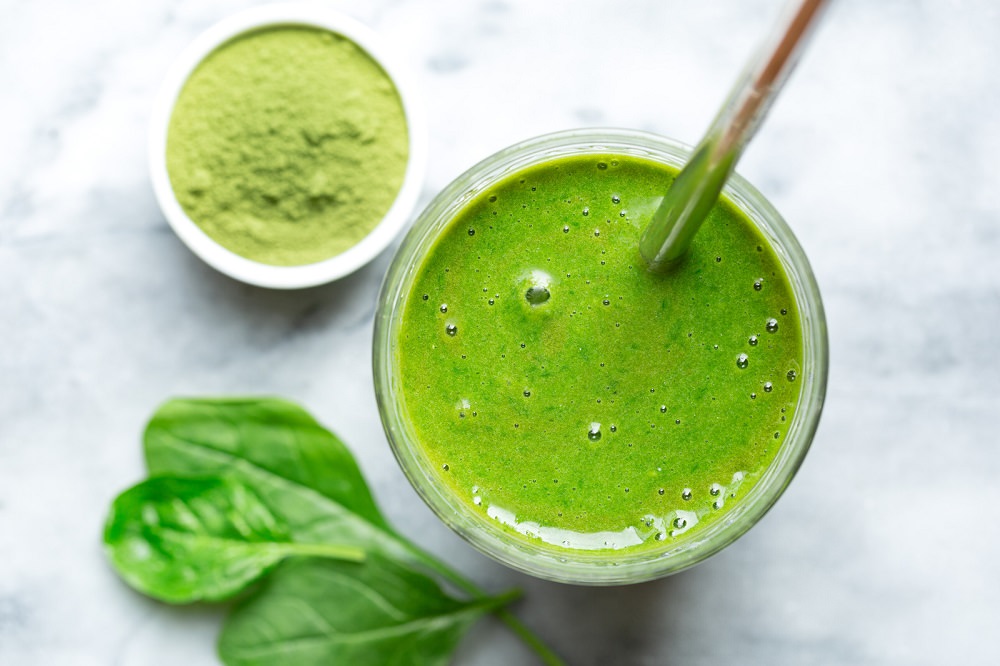
How To Include Moringa in Your Diet
You can find moringa products in many health food stores, most commonly in powder form. Other products include energy bars, wellness shots, and tea.
The most common way to eat the seeds is to roast them. Some people prefer to cook the seeds with the leaves. You can consume moringa seeds together with legumes to complement their sulfur amino acid deficiency. The moringa seed oil can be a good alternative to another vegetable oil used for cooking or frying food.
Add moringa powder to your favorite fruits to make delicious and nutritious smoothies. You can also easily supplement soups, salads, and drinks by adding moringa powder
Moringa can be a great addition to your diet thanks to its many health benefits. However, you should consult your doctor before taking moringa, as there are potential side effects if you are pregnant or taking with certain medications.
 |
About the AuthorDonald Giddings is founder and editor in chief at Green Living Zone. A lifelong sustainability enthusiast, Donald is always looking for the best way to live in harmony with nature. When he is not trying out new eco-friendly recipes, he writes about green, sustainable ways to maintain your home, body, and soul, readily sharing his abundant experience with other green living aficionados. |
The post Moringa: Versatile Tree With Sustainable Superfood Powers appeared first on Earth 911.

